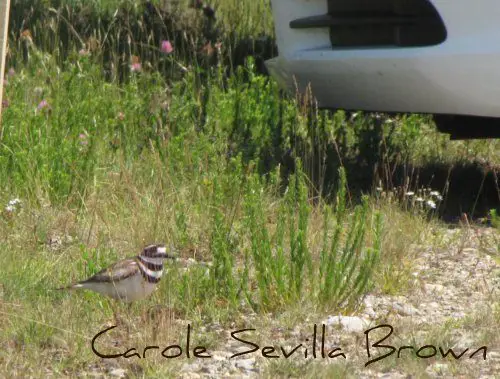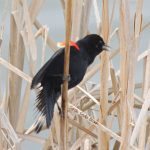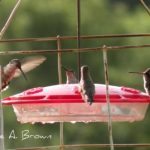That was the question I heard as I crossed the parking lot at Todd’s Point in Reid State Park near Georgetown, Maine where I’ve been birding for the past week.
The question surprised me, and I turned to my birding buddy and said “Why do we keep building parking lots where birds nest?” That is the much more important question in my mind.
Habitat loss due to human action is the leading cause of population declines for birds and other wildlife. In many cases we have simply left no place else for birds to go.
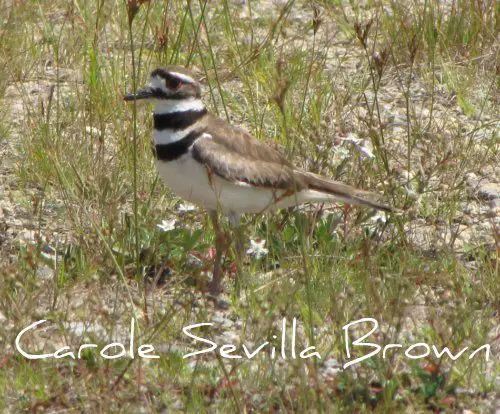
The nesting bird was a Killdeer, a member of the Plover family, which are mostly shorebirds but the Killdeer is often found far from the shore. It likes to lay its eggs in gravel, and this gravel parking lot was perfect (well, except for the cars driving around the cordoned off nest and all of the people coming to look at it).
It’s really not a good idea to disturb a nesting bird, because they waste a lot of energy flying away from their nest because of unwelcome visitors who startle them and cause them to take flight when they want nothing more than to be tending to their nests. Many shorebirds are in trouble and declining because their nests keep getting disturbed. Prime disturbances include ATVs on the beach and people who let their dogs run through nesting areas (and the cars and people in this particular parking lot).
As the people who had asked the question about the “stupid bird” approached this nest, the Killdeer got off of her eggs and began to call loudly and to run away, diverting attention from the 4 precious eggs she had been sitting on.
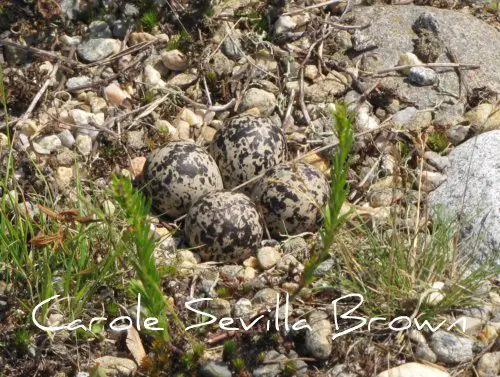
Killdeer don’t really make a nest, they just make a shallow depression in the gravel and lay their eggs right there. This means that their eggs are quite exposed if mama is forced to leave them unattended.
Killdeer have a unique way to distract those who would get too close to their eggs. They do the “broken wing act,” dragging one wing along the ground as if they are injured. This action causes would be predators to think that they are weak and easy prey, thus inviting the attacker to chase them, which of course leads the intruder away from the eggs, and the bird will fly away if their attacker gets too close.
What strange bird behavior have you noticed in your wildlife garden?
More From Ecosystem Gardening:
Submit your review | |

